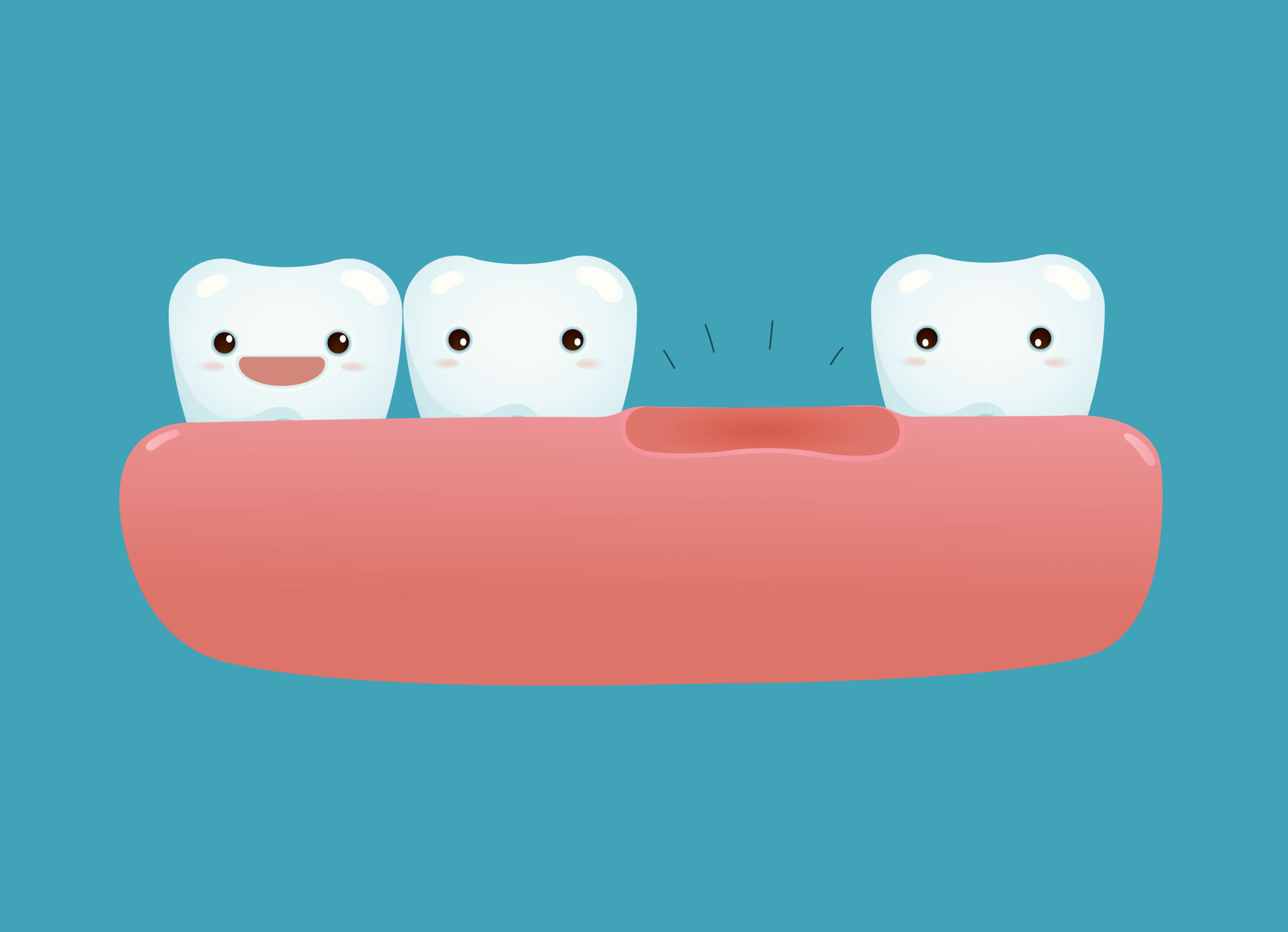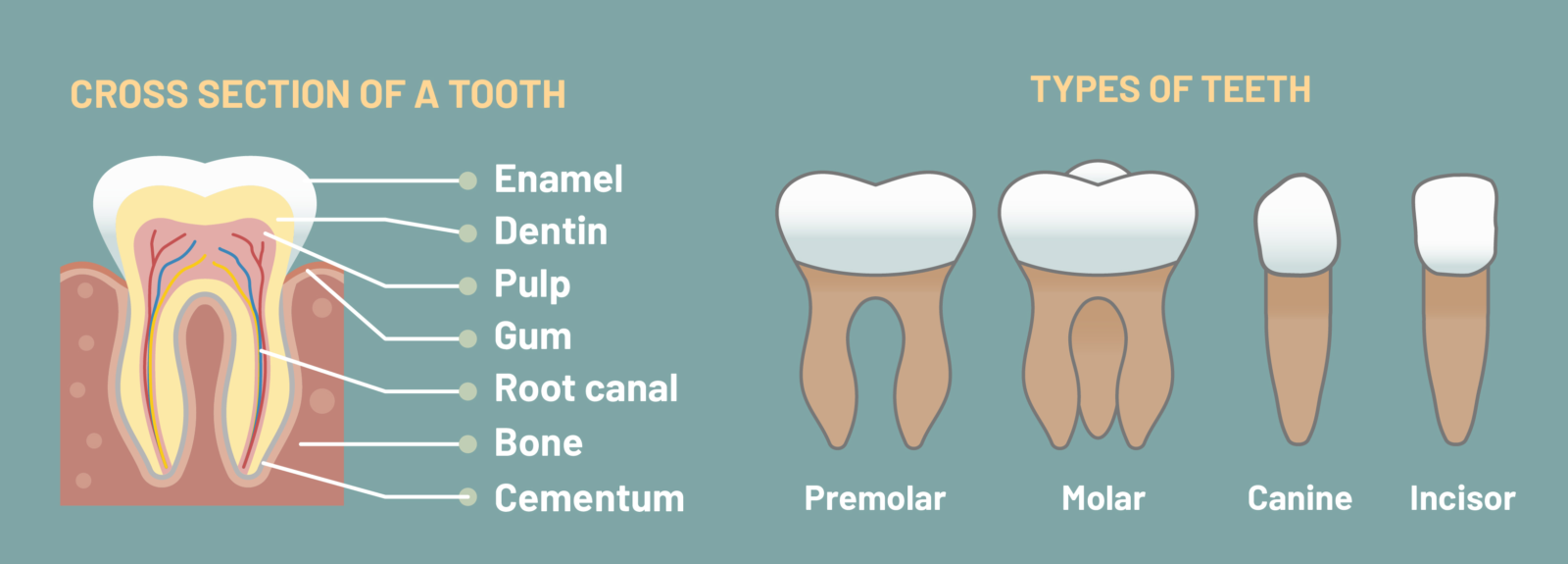
When you lose a tooth as a child it’s no biggie. Baby teeth fall out leaving room for adult teeth to grow and become a part of your permanent set of teeth.
But what happens when you lose a permanent tooth?
Unfortunately, unlike a shark where a new set of teeth is ready to go, there won’t be another tooth that grows, and simply ignoring the tooth-less gap can result in further oral health complications.
What happens when you ignore a missing tooth?
If you’re missing one or more teeth at the back of your mouth, you probably think it’s not a big deal since they don’t affect your smile or appearance. However, front or back, if you choose to delay or avoid seeking medical treatment, this can lead to more serious oral and general health issues, resulting in more extensive and costly treatments.
1. Tooth decay and gum disease
If your teeth start to shift because of the gap, you may not be able to reach all surfaces of your teeth when brushing and flossing, which can cause plaque or bacteria to form. This can increase your risk of tooth decay and gum disease which can lead to further tooth loss. Teeth that have moved can also change your bite.
Not only does it put your oral health at risk, but it can also put your overall health at risk, with gum disease linked to more serious health conditions including heart disease and diabetes.
2. Teeth misalignment
Your teeth naturally support each other, so when one is missing, it can cause adjacent teeth to lean and shift into the gap. This shifting can cause a domino effect on the rest of your teeth, eventually causing all neighbouring teeth to begin to lean into that space.
Over time this can lead to a crooked smile, bite problems, joint pain and headaches. Your teeth become misaligned, making it harder to clean in between, which can lead to tooth decay and further tooth loss.
3. Bone loss
You may not know this, but your teeth help support your jaw bone by stimulating bone growth. When one or more teeth are missing, the bone in that area no longer gets the stimulation it needs to grow, resulting in bone loss.
Over time, this bone loss can lead to your jaw shrinking, making it less stable to support the remaining teeth and eventually altering the shape of your face and your smile.
What are my options for replacing missing teeth?
Thanks to modern medicine there are a number of options to choose from when it comes to replacing your missing teeth. We recommend booking an appointment with your dentist so they can discuss all the options for replacing your missing teeth and restoring the look, feel and function of your mouth.
Dental treatments can include:
1. Dental implants
Dental implants are a reliable way to replace your missing teeth for life, providing you a permanent solution for missing teeth due to injury, tooth decay, gum disease, or loose dentures replacement. If you’re missing a single tooth, a small titanium screw is placed into your jaw in a relatively quick and painless procedure. An abutment is then placed on top of the screw to hold in place a dental crown, your new tooth.
2. Implant-supported bridge
If you’re missing several teeth, then a fixed implant-supported bridge will provide you with a long-term solution that looks and feels just like your natural teeth. Unlike traditional dentures, which usually compromise adjacent teeth, tend to be loose, and cause your gums to recede, a dental implant bridge is more comfortable while providing better stability and function.
3. Implant-supported denture
If you’re missing all of your natural teeth or have been dealing with loose dentures, a dental implant-supported denture offers a permanent and hassle-free solution. Also known as all-on-X, involves placing a complete set of teeth onto 4 – 6 dental implants that look and feel just like natural teeth. With proper oral care and hygiene, your implant-supported dentures can last a lifetime.
4. Dentures
Dentures are a cost-effective dental solution that is cheaper than dental implants and provide immediate satisfaction of filling in the gaps of missing teeth. They are completely removable and are made to match existing teeth colour to blend in with your natural smile. However, partial dentures can cause gum and bone loss, resulting in jaw bone deterioration. As your gums and bones start to shrink, the partial dentures will be pushed out of place and become ‘loose’. This is where the fear of dentures slipping out while talking or eating come in.
Speak to a dentist
If you have a missing tooth or missing several teeth, book an appointment with Tandara Dental Centre Gosnells to discuss what are your options. We’ll explain what is involved with each dental treatment so you can make a decision that you are happy with. We accept all private health funds including Medibank Private, HCF, Bupa, and more.










